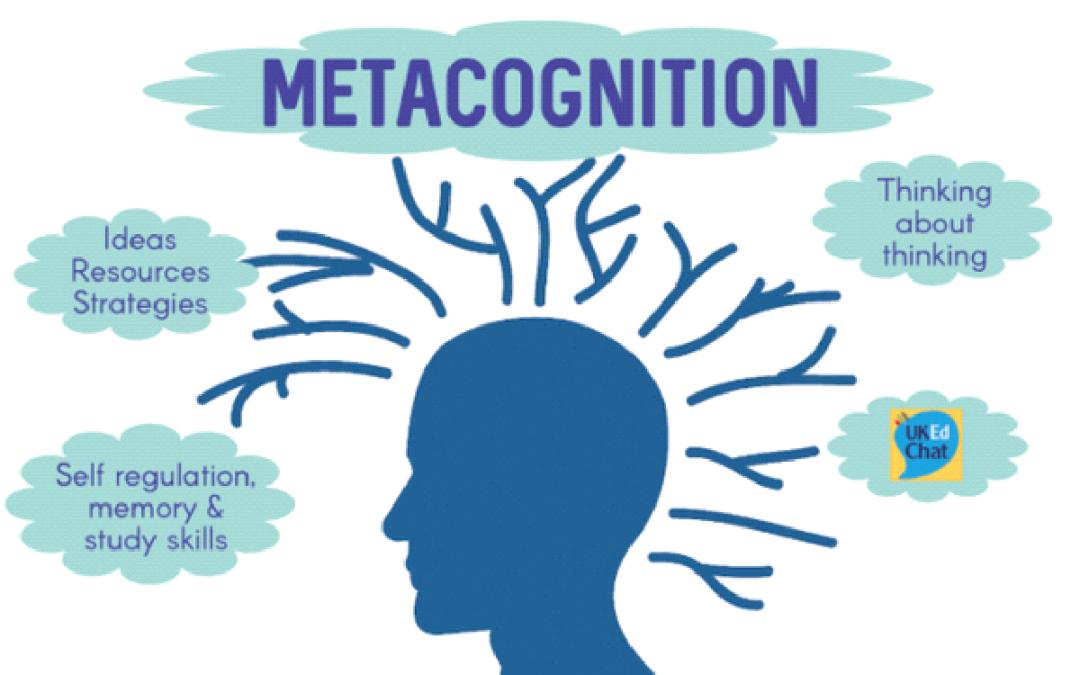Concept
Amongthemanydefinitionsofmetacognition, theonemadebyFlavell, thepioneerofmetacognitiveresearch, isthemostrepresentative.In1976, heexpressedmetacognitionas "individual'sknowledgeaboutone'sowncognitiveprocessandresultsorotherrelatedthings" et "inordertocompleteaspecificgoalortask, accordingtothecognitiveobjecttoactivelycarryoutthecognitiveprocessMonitoringandcontinuousadjustmentandcoordination" .In1981, hemadeamoreconcisesummaryofmetacognition: "reflectionorregulationofanyaspectofknowledgeorcognitiveactivitiesofcognitiveactivities" .A.BrownandL.Bakeralsobelievethatmetacognitionis "anindividual'sknowledgeandcontrolofthecognitivedomain" .Itcanbeseenthattheconceptofmetacognitionincludestwoaspects, oneisknowledgeaboutcognition, andtheotheristheregulationofcognition En d'autres termes, d'une part, la métacognition est une entité de connaissance, qui contient des connaissances sur les capacités cognitives statiques, les activités cognitives dynamiques, etc. processus d'ajustement de la tête.En tant que « cognition sur la cognition », la métacognition est considérée comme le cœur des activités cognitives et joue un rôle important dans les activités cognitives.
Ladifférenceentremétacognitionetcognition
? Isthereanydifferencebetweenthetwoconceptsofmetacognitionandcognition ExperimentalstudiesbySlife, Swanson, andothershavegivenapositiveanswertothisquestion.Slifeetal.studiedwhethertherearedifferencesinmetacognitiveabilitiesamongsubjectswiththesamecognitivelevel.Therearetwogroupsofsubjects: childrenandnormalchildren.ThereisnosignificantdifferenceinIQscoresbetweenthetwogroupsofchildren, andthescoresofthe10mathproblemsandthemathachievementtestarematched.Theresultsshowthattherearesignificantdifferencesintwometacognitiveindicatorsbetweenthetwogroupsofsubjectsinproblem résolution: ①LDchildren'sknowledgeabouttheirownproblem-solvingskillsislessaccurate; ②LDchildren'sknowledgeoftheirownproblem-solvingskillsislessaccuratewhenmonitoringtheirownproblem-solvingskills.Inaccurate, tendstooverestimate.Participantswiththesamelevelofcognitionhavedifferentperformancesinmetacognition.Itcanbeseenthatmetacognitionandcognitionaretwoconceptsthatcanbeseparated.
La métacognition et la cognition appartiennent aux activités de cognition et de pensée humaines. Les différences entre les deux se manifestent principalement dans les aspects suivants :

Les objets de la cognition et de la pensée sont différents
L'objet de l'activité cognitive est externe et spécifique.
Le contenu de l'activité est différent
Thecontentofthecognitiveactivityistoperformacertainintellectualoperationonthecognitionobject, Parexemple, readingacertainarticle, throughthewordingofthearticleRecognize, understandsentencesandparagraphs, andfinallyachieveanoverallgraspofthearticle.Thecontentofmetacognitiveactivitiesistoregulateandmonitorcognitiveactivities.Forexample, themetacognitiveactivitiesinreadinghaveaclearpurposeofreading, focusonthemaincontentofthereadingmaterials, andcontinuouslyadjustthecurrentreadingactivities.Self-questiontocheckthereadingeffect, takecorrectivestrategiesatanytime, etc.
Différentmodesofaction
Les activités cognitives peuvent directement permettre au sujet cognitif de faire progresser les activités cognitives. Par exemple, si un individu lit un article, il peut connaître l'idée générale de l'article.
La vitesse de développement est différente
Fromtheperspectiveofindividualcognitivedevelopment, metacognitionlagsbehindthedevelopmentofcognition.Studieshaveshownthatbabieshavecertaincognitiveabilitiesaftertheyareborn.However, childrenonlybegintoacquiresomesporadicandsuperficialmetacognitiveabilitiesintheearlystagesofschool, whichisthebeginningofthedevelopmentofmetacognitiveabilities.Amongcollegestudents, therearegreatindividualdifferencesinmetacognitiveability.Bystrengtheningthestudyandtrainingofmetacognition, themetacognitiveabilityofcollegestudentscanbedevelopedandimprovedrapidly.
En essence, la métacognition est un autre phénomène différent de la cognition. Elle reflète la cognition du sujet de sa propre « cognition ».
Structure
(1) Brownbelievesthatmetacognitionconsistsoftwomajorcomponents: knowledgeaboutcognitionandregulationofcognition.Knowledgeaboutcognitionisanindividual'sknowledgeabouthisowncognitiveresourcesandthecompatibilityofthelearnerwiththelearningsituation, thatis, theindividual'sknowledgeabouthisowncognitiveabilities, cognitivestrategies, etc., andinwhatkindofproblemsituationKnowledgeofwhatcognitivestrategiesshouldbeusedandhowtobestusetheirabilities.Theadjustmentofcognitionreferstotheadjustmentmechanismusedbyanactivelearnerintheprocessoftryingtosolvetheproblem, includingplanning, inspection, de surveillance, inspectionandsoon.Thetwopartshavedifferentproperties.Knowledgeaboutcognitionisstable, conscient, andexpressible, anditdevelopsasindividualsage.Theregulationofcognitionisnotstable, andisusuallycarriedoutunconsciously, soitisnoteasytoexpress. Cela dépend plus des tâches et des situations plutôt que de l'âge. Même les jeunes enfants peuvent utiliser ce processus d'ajustement dans certaines tâches. t.
(2) Flavellbelievesthatthetwomaincomponentsofmetacognitionare: metacognitiveknowledgeandmetacognitiveexperience.Theso-calledmetacognitiveknowledgereferstothepiecesofknowledgestoredbyindividualsthatarenotonlyrelatedtothecognitivesubjectbutalsorelatedtovarioustasks, buts, activitiesandexperiences.Flavellbelievesthattherearethreemaintypesofmetacognitiveknowledge: ①Individualmetacognitiveknowledge, thatis, theindividual'sknowledgeaboutcertaincharacteristicsofselfandothersascognitiveprocessors.②Taskmetacognitiveknowledge, thatis, knowledgeaboutthenatureoftheinformationprovidedbythecognitivetask, therequirementsandpurposeofthetask.③Strategicmetacognitiveknowledge, thatis, knowledgeaboutstrategies (cognitivestrategiesandmetacognitivestrategies) andtheireffectiveuse.Atthesametime, Flavellparticularlyemphasizestheinteractionofthesethreetypesofknowledge.Hebelievesthatdifferentindividualswillmakejudgmentsontheprosandconsofstrategiesbasedonspecificcognitivetasks.Theso -appelée expérience métacognitive fait référence à la con sciouscognitiveexperienceoremotionalexperienceaccompanyingandsubordinatetointellectualactivities.Flavellbelievesthatmanymetacognitiveexperiencesareinformationabouttheprogressyouhavemadeortheprogressyouwillmakeinacertaincognitiveactivity.Flavellbelievesthatincognitiveactivities, metacognitiveknowledgeandmetacognitiveexperienceinteract.Ontheonehand, metacognitiveexperiencecanleadtotheaddition, suppression, ormodificationofmetacognitiveknowledge.Individualswilldiscovertherelationshipbetweengoals, stratégies, metacognitiveexperiences, andtasksincognitiveactivities, andthenassimilatethesefindingsintoreality.Somemetacognitiveknowledgesystems, ontheotherhand, metacognitiveknowledgecanhelpindividualsunderstandthemeaningofmetacognitiveexperienceandtheimplicationsofmetacognitiveexperienceforcognitivebehavior.Therelationshipbetweenthetwoisalsoreflectedin: sometimestheyarepartiallyoverlapped, andsomemetacognitiveexperiencescanberegardedaspiecesofmetacognitiveknowledgeenteringconsciousness.
(3) ComparingandcomprehensivelycomparingBrownandFlavell'sanalysisofmetacognitivestructure, itcanbefoundthatbothofthembelievethatmetacognitiveknowledgeisoneofthecomponentsofmetacognition, butaboutmetacognitionTheyhavedifferentviewsontheothercomponentofAnothercomponentofBrownistheregulationofcognition, butFlavelldoesnothavethisexpression.ThesourceofthisdifferenceisthatFlavellanalyzesmetacognitionasastaticknowledgestructure, whileBrownanalyzesmetacognitionthatisbothaknowledgeentityandadynamicprocess.Thatis, thedifferenceintheanalysisobjectcausestheanalysisresult.difference.Infact, itcanbeclearlyseenfromthetwomen'sdefinitionsofmetacognitionthattheybothbelievethatmetacognitionincludesnotonlyknowledgeaboutcognition, butalsotheregulationofcognition.AnothercomponentofFlavellismetacognitiveexperience, whichBrowndidnotmention.Infact, noneoftheadjustmenttechniquesproposedbyBrown, suchasplanning, l'inspection, le contrôle, la modification, l'évaluation, etc. .,sont étroitement liés à l'expérience dite métacognitive. cationofsomeskillswillleadtothegenerationofmetacognitiveexperience, whiletheapplicationofsomeskillsisdrivenandguidedbythemetacognitiveexperience.Inotherwords, metacognitiveexperienceisaccompaniedbytheentireprocessofcognitiveadjustment.Withoutit, cognitiveadjustmentisimpossible.Therefore, basedonthetwopeople'sviews, webelievethatmetacognitionconsistsofthreeparts: metacognitiveknowledge, metacognitiveexperience, andcognitiveadjustment.Thatistosay, d'abord, webelievethatmetacognitionhasadualstate, itisnotonlyastaticknowledgeentity, butalsoadynamicprocess.Therefore, cognitiveadjustmentshouldbeoneofthebasiccomponents, deuxième, metacognitiveexperienceandrecognitionCognitiveadjustmentisdifferentinnature.Theformerisanemotionalorcognitiveexperiencestateofthecognitivesubject, whilethelatterisaprocess (ortechnique) .Par conséquent, l'expérience métacognitive doit être séparée de l'ajustement cognitif, comme deux composantes relativement indépendantes. Bien que ces trois aspects soient relativement indépendants, ils sont indissociables. justmentisnotonlystimulatedandguidedbymetacognitiveexperience, butalsobasedonmetacognitiveknowledge; ontheotherhand, eachstepofcognitiveadjustmentwillcauseindividualstoproducenewmetacognitiveexperiences, andatthesametimeWillenrichanddeveloptheindividual'smetacognitiveknowledge.Moreover, metacognitiveknowledgeandmetacognitiveexperiencealsoinfluenceeachother (seeFlavell'spointofviewabove) .Thesethreeaspectsinteractandrecur, andthedynamicandorganiccombinationofthethreeformsametacognition.
